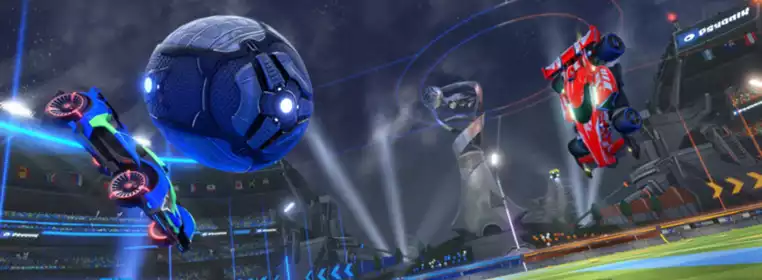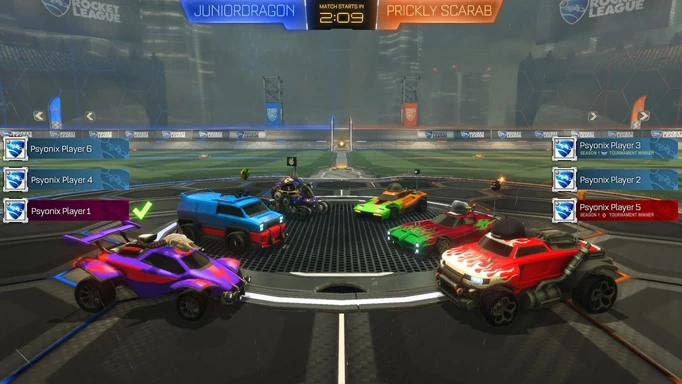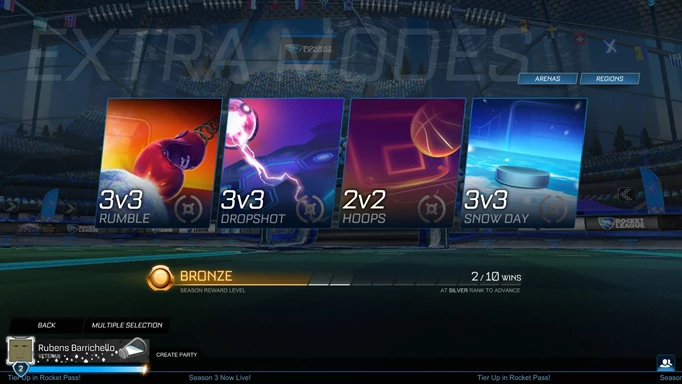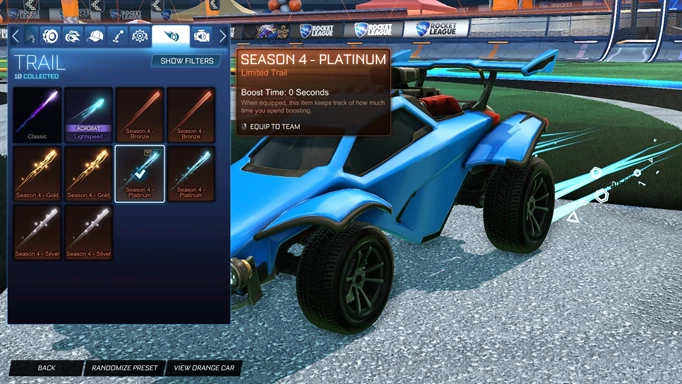Rocket League ranks & ranking system explained

Keeping up with the Rocket League ranks, along with being aware of how the ranking systems work as a whole, is the best way to know just how good you are. This is a highly competitive game, with players all over the world competing to be the best.
The ranking system divides players into ranks from Bronze to Gold, to Diamond and beyond. If you want to know how the system works in Rocket League, read on.
Rocket League ranks list
 Click to enlarge
Click to enlargeThe Rocket League ranks players can achieve are:
- Unranked
- Bronze
- Silver
- Gold
- Platinum
- Diamond
- Champion
- Grand Champion
- Supersonic Legend
Within each of the ranks, excluding Supersonic Legend, the following structure applies:
- Tiers I, II, and III.
- Within these tiers are four divisions: I, II, III, and IV.
An example of this would be "Platinum II Division II".
The Supersonic Legend rank is one of the most welcome changes to Rocket League ranks since it was introduced. It was added at the same time the game went free-to-play and sets special players apart.
The Grand Champion rank became saturated as players began to develop their skills, with the inclusion of a new tier having gone down a treat. It gives the better players something to grind for but this rank doesn't use the tiered system. Once players hit Supersonic Legend, they are at the top.
Rocket League MMR ranking system explained
 Click to enlarge
Click to enlargeProgressing through the Rocket League ranking system is pretty simple; win matches to progress through the Rocket League ranks. What the game doesn't show is MMR (matchmaking rank). This is a hidden score reserved for the rank of Grand Champion.
Players can find out their MMR before hitting Grand Champion by using a Rocket League tracker, a third-party tool. Individual performances like goals and assists don't affect MMR, but wins are the most important thing.
Players are matched up against opponents based on MMR, not in-game rank (although the two are closely related). By beating an opponent with a higher MMR more points will be earned versus someone with a lower MMR, the same goes for losing to someone higher.
What is competitive play in Rocket League?

 Click to enlarge
Click to enlargeIn competitive Rocket League, which can be found by clicking Play followed by Competitive, there are three playlists:
- 3v3 Standard
- 2v2 Doubles
- 1v1 Duel
Within each game mode, you will get a separate rank. Here are some examples and key points to remember about Rocket League ranks:
- Playing more 3v3 Standard might result in diamond rank, but may only be gold in lesser-played 1v1 matches
- Players need to complete 10 placement games to get placed in their designated ranks for competitive play
- Placement games let Rocket League determine a player's skill level and match with similarly skilled players
- There are 10 matches per playlist for players with a total of 30 games until hitting three separate ranks
These three core playlists in the ranking system are the foundation of the game. While there are other modes in the game - more on those in a moment - 1v1, 2v2, and 3v3 are typically what pro players and content creators play.
In the Rocket League Championships, 3v3 Standard is quite common. Spectators will often see players such as Mariano "SquishyMuffinz" Arruda practising their freestyling skills in competitive 1v1.
It's worth noting that these competitive playlists also differ mechanically from the casual playlists. Leaving a match early without forfeiting comes with leaving penalties, and bots won't replace any players who do abandon the match.
Rocket League extra modes


There are more ways to play Rocket League than you might think. These aren't competitive game modes, but players can still climb the ranks after playing ten games of each:
- 2v2 Hoops
- 3v3 Dropshot
- 3v3 Snow Day
- 3v3 Rumble
Despite not being competitive, these modes still require skill to succeed. In Dropshot and Hoops, aerial duels are key, and therefore they introduced ranks so that low-skilled players weren’t overtaken by players who were much further advanced in this area.
What rewards do you earn in Rocket League?

 Click to enlarge
Click to enlargeAt the end of each season, Rocket League ranked players can earn rewards based on their final placement, such as car decals, wheels, boosts, and other cosmetic items.
Why play competitive mode in Rocket League?
In a nutshell, competitive Rocket League is much more enjoyable for those who love to win. It places a higher value on getting wins rather than scoring freestyle goals. It’s not all about winning, but it's a large factor.
Having ranks to aim for and achieve sets players' goals is valued within the gaming community rather than just playing for the sake of it. It is also a great way to advance skills and become the best Rocket League player possible by rising through the ranks.
For more coverage like this, head to our Rocket League homepage to find guides including our breakdown of the Volkswagen Golf GTI hitbox and how to get fan rewards.